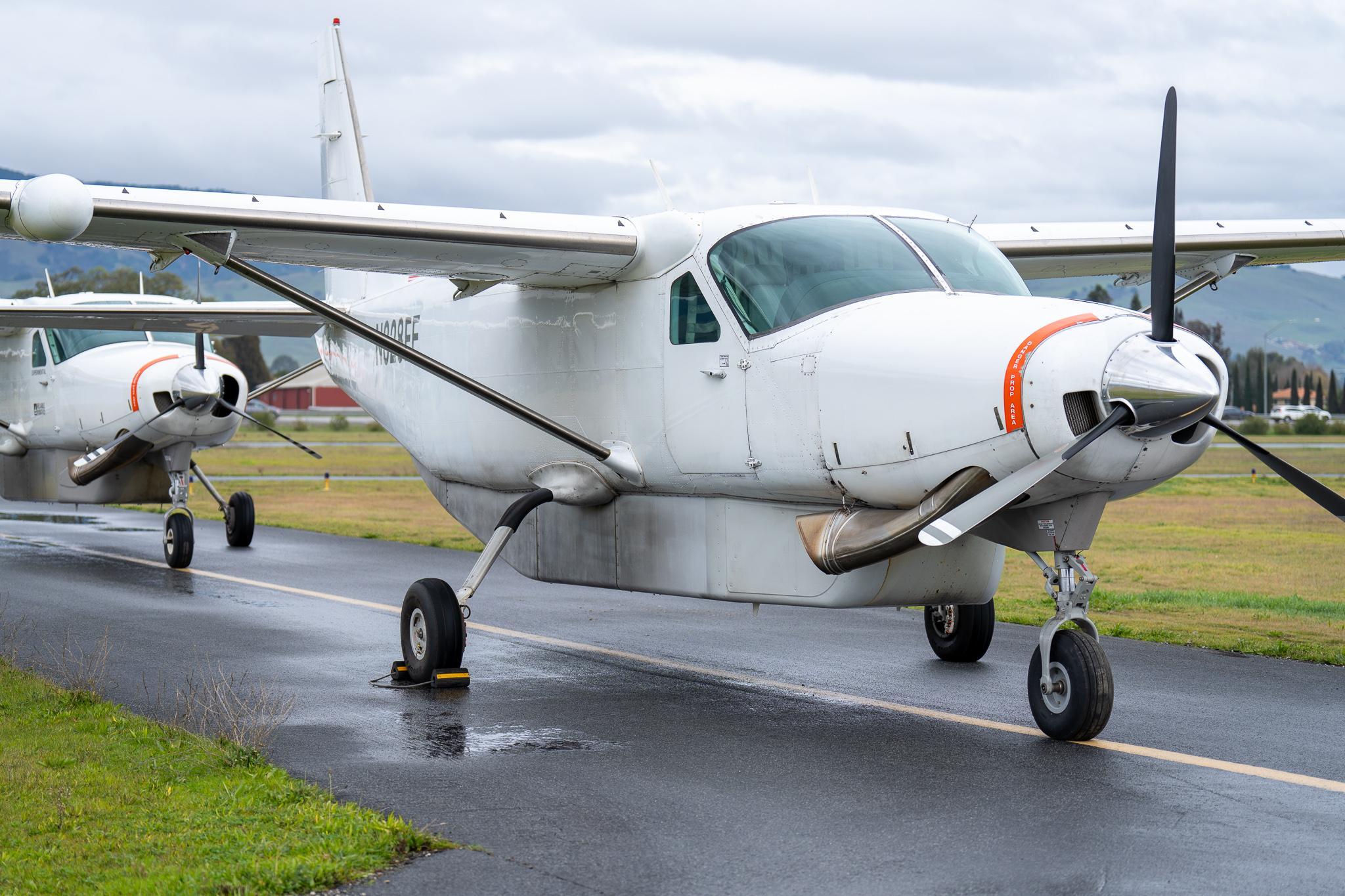
Reliable Robotics is currently working toward FAA certification of its autoflight and navigation system on the Cessna 208 Grand Caravan.
Reliable Robotics has cleared another milestone toward establishing final means of compliance with the FAA regarding certification of its continuous engagement autopilot system for the Cessna 208 Caravan.
The FAA has advanced Reliable Robotics’ G-2 determination of compliance issue papers from Stage 2 to Stage 3, a company spokesperson confirmed to Aviation Week. The G-2 issue papers serve to define an applicant’s responsibilities for showing compliance with the terms outlined in the G-1 certification basis, which the FAA and Reliable Robotics agreed to in August.
There are four stages in the process of agreeing to G-2 means of compliance with the FAA. In Stage 1, the applicant provides a background statement to the FAA. In Stage 2, the FAA adds all of the requirements necessary to address the applicant’s proposal. Stage 3 consists of a convergence process and back-and-forth between the two parties, while Stage 4 marks the final agreement and closure of the G-2 process.
Writing on LinkedIn, Reliable Robotics CEO Robert Rose said the G-2 issue paper progress “represents a crucial step in coming to an agreement with the FAA as to how our navigation and autoflight system will meet the performance-based safety objectives contained in 14 CFR part 23 amendment 64.”
“This issue paper is part of our STC [supplemental type certificate] program on the [Cessna] Model 208B Caravan, which will enable continuous autopilot engagement through all phases of flight,” Rose wrote. “In other words: the autopilot will be on for taxi, takeoff, cruise and landing.”
Assuming the STC is granted, the Mountain View, California-based startup plans to begin by integrating the continuous engagement autopilot system into the fleet of AirDialog–its Albuquerque, New Mexico-based wholly owned airline subsidiary–which operates a fleet of five Caravans as cargo feeder aircraft on behalf of FedEx.
Rose previously told Aviation Week in December that the company also plans to pursue additional STCs for the Caravan to further improve and enhance the reach of its automation systems. Eventually, he hopes to offer its system to other Caravan operators as well.
At the time, Rose said he expects to achieve full supplemental type certification for the autonomous system “within two years.”
